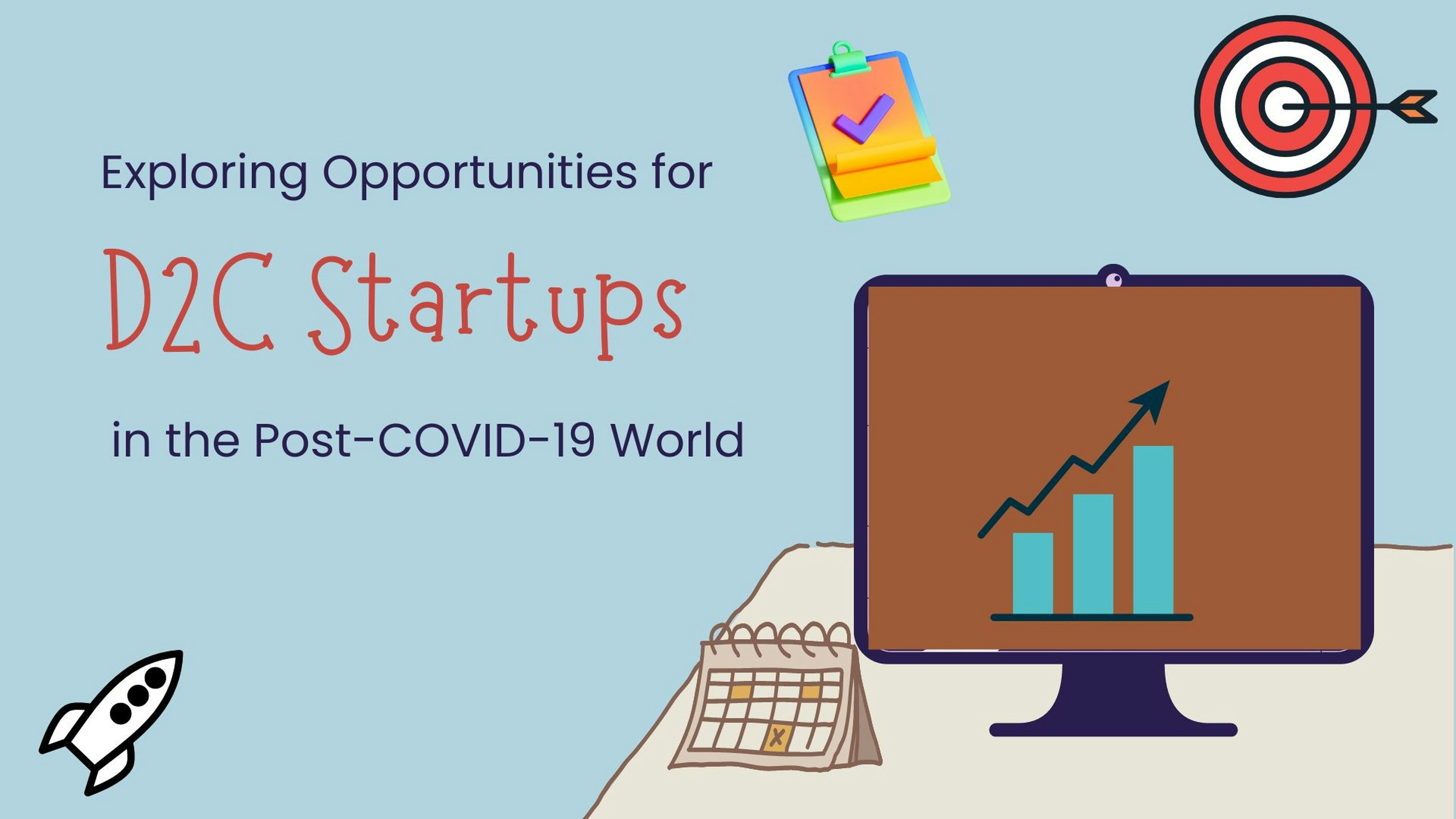
Introduction to Consulting for Start-Ups
Consulting for start-ups is a vital service that provides emerging businesses with the expertise and guidance necessary to navigate the complexities of launching and running a successful enterprise. As new ventures often face unique challenges, consulting can serve as a strategic resource, offering advice tailored to the specific needs and circumstances of start-ups. This not only helps in establishing a solid foundation for these businesses but also aids in avoiding common pitfall scenarios that many entrepreneurs encounter.
Consultants in this arena typically specialize in various domains, including business strategy, marketing, financial planning, and operations management. Each type of consulting service plays an instrumental role in ensuring that entrepreneurs are equipped with the knowledge and tools necessary to make informed decisions. For example, strategic consultants help start-ups identify their target market and develop effective business models, while marketing experts offer guidance on branding and customer acquisition tactics that can significantly impact growth trajectories.
One of the key advantages of engaging a consulting service is the fresh perspective that seasoned professionals bring to the table. Start-up founders may become too entrenched in their vision, leading to potential blind spots. A consultant’s external viewpoint can facilitate a more objective analysis of business strategies and operational frameworks, ultimately fostering innovation and enhancing long-term sustainability. Furthermore, consultants often have valuable networks and resources that can be leveraged, providing start-ups with crucial connections that can accelerate growth.
In light of these benefits, it becomes clear that the role of consulting is not merely supportive but rather an essential driver of entrepreneurial success. By utilizing specialized consulting services, start-ups can increase their chances of survival and profitability in an increasingly competitive business landscape.
Understanding the Start-Up Landscape
Start-ups occupy a distinctive position within the business ecosystem, characterized by innovative ideas, ambitious objectives, and the desire to disrupt traditional markets. However, they also face a plethora of unique challenges that can hinder their growth and sustainability. One of the primary difficulties is navigating market dynamics, which often fluctuate rapidly. Start-ups must identify potential customer needs and adapt their offerings accordingly, all while operating with limited information and resources.
Competition is another pressing concern for start-ups. Established players typically dominate the market, leveraging their experience, resources, and brand recognition. For new entrants, this can create an uphill battle, as they must strive to distinguish themselves and capture market share. As a result, start-ups are often pressured to innovate continually, ensuring that their product or service remains relevant. This relentless pursuit of differentiation necessitates strategic guidance, which is where consulting can play a vital role.
Resource limitations also pose significant obstacles for start-ups. In the initial phases, the lack of financial capital, skilled personnel, and operational infrastructure can stifle growth. Founders may find themselves overwhelmed, attempting to juggle multiple responsibilities, from product development to marketing efforts. This scenario highlights the importance of specialized insights and professional expertise, enabling start-ups to focus on their core competencies and streamline their operations.
Given these challenges, seeking professional consulting services can provide invaluable assistance. Consultants equipped with industry knowledge and experience can offer tailored strategies, ensuring that start-ups navigate their early stages effectively. By gaining insights into market trends, competitive landscape, and operational efficiencies, entrepreneurs can significantly enhance their chances of success and longevity in the marketplace.
Benefits of Consulting for Entrepreneurs
Consulting services provide a myriad of advantages for entrepreneurs embarking on their start-up journey. One fundamental benefit lies in strategic planning. Entrepreneurs often face numerous challenges in defining their vision and objectives. Consulting firms bring invaluable expertise, helping entrepreneurs to formulate realistic and effective business strategies. This support enables entrepreneurs to navigate initial phases with clarity and direction, significantly enhancing their long-term prospects.
Another vital benefit is the conduct of comprehensive market research. Start-ups frequently operate in rapidly changing environments, making it essential for entrepreneurs to understand market dynamics and consumer preferences. Consultants possess the tools and methodologies needed to gather and analyze pertinent data. This insight allows entrepreneurs to make informed decisions about product development, pricing strategies, and marketing efforts, ultimately aiding in their competitive positioning.
Operational efficiency is yet another area where consulting proves beneficial. Many start-ups struggle with resource allocation and process management. By engaging with consultants, entrepreneurs can identify inefficiencies within their operations and develop streamlined processes. Improved operational efficiency not only reduces costs but also enhances overall productivity, allowing entrepreneurs to focus on growth and innovation.
Furthermore, risk management is critical in the volatile start-up landscape. Consultants provide the expertise necessary to foresee potential pitfalls and develop strategies to mitigate them. Successful entrepreneurs, such as Airbnb and Uber, have effectively utilized consulting services to navigate complex regulatory landscapes and anticipate market trends. By leveraging consulting expertise, these companies were able to address challenges proactively, steering clear of pitfalls that could have undermined their success.
In sum, the myriad benefits that consulting offers to entrepreneurs—including strategic planning, market research, operational efficiency, and risk management—are essential for unlocking entrepreneurial success. By embracing these services, start-ups can significantly enhance their performance and sustainability in an increasingly competitive landscape.
Access to Industry Expertise and Networks
The journey of launching a start-up often involves navigating a myriad of challenges that can be difficult for entrepreneurs to tackle alone. This is where consulting becomes invaluable, offering access to seasoned industry experts who possess a wealth of knowledge. These professionals bring not only specialized skills but also deep insights into market trends, consumer behavior, and competitive landscapes, which are critical for informed decision-making.
Consultants can provide tailored strategies that help start-ups effectively address their unique challenges, significantly enhancing their chances of success. Furthermore, their involvement can catalyze growth by identifying opportunities that may not be readily apparent to entrepreneurs who are engrossed in daily operations. The external perspective of a consultant is invaluable, as they can challenge assumptions and encourage new ideas that may lead to innovative solutions.
In addition to expert advice, consultants often have extensive professional networks that start-ups can leverage. The connections forged through consulting relationships can open doors to potential partners, investors, and customers. Such networks can be crucial, especially during the formative stages of a start-up when establishing credibility and visibility in the market is essential. Moreover, access to mentorship through consultants facilitates the professional growth of entrepreneurs, equipping them with practical skills and knowledge gleaned from their experience in the industry.
Ultimately, the collaboration between start-ups and consultants can create a platform for shared knowledge and resources, increasing the potential for long-term success. By bridging the gap between innovative ideas and practical execution, consulting plays a pivotal role in equipping entrepreneurs with the necessary tools to thrive in competitive environments. The synergy generated through built connections not only fosters partnerships but also enhances the overall ecosystem in which the start-up operates.
Shaping Business Strategy and Vision
In today’s dynamic market environment, the formulation of a robust business strategy and a clear vision is paramount for start-ups aiming for long-term success. Consulting plays an integral role in shaping these essential elements by providing entrepreneurs with expert insights and a fresh perspective on their business objectives. Engaging with experienced consultants can lead to a significant transformation in how start-ups understand their market potential and operational roadmap.
Consultants possess a wealth of experience across various industries, allowing them to offer insights that are both strategic and actionable. They assist entrepreneurs in analyzing market trends, evaluating competitive landscapes, and identifying potential growth opportunities. Through data-driven analysis, consulting engagements can unearth patterns and insights that entrepreneurs may overlook. This process not only enhances the overall business strategy but often leads to the alignment of business vision with market demands, ensuring that the start-up is not only reactive but also proactive in pursuit of its goals.
The development of a business strategy is closely linked to the articulation of a clear vision. By working with consultants, entrepreneurs can refine their mission statements and core values, establishing a sense of direction that resonates with both internal stakeholders and potential customers. This clarity is essential in navigating the complexities of start-up growth, as it provides a framework within which decisions can be made and resources allocated efficiently. Moreover, a well-defined vision fosters a cohesive company culture, driving employee engagement and motivation.
Ultimately, consulting provides a structured approach to developing business strategies and visions that are not only realistic but also aspirational. By leveraging external expertise, start-ups can craft comprehensive plans that enhance their prospects for success, ensuring that they remain competitive in an ever-evolving marketplace.
Enhancing Skills and Knowledge
The entrepreneurial landscape is characterized by constant change and innovation, making it imperative for start-ups to continuously enhance their skills and knowledge. Consulting provides an avenue for start-ups to acquire the essential expertise needed to navigate complex business environments. Consultants can facilitate training sessions and workshops designed to empower entrepreneurs and their teams, cultivating an atmosphere of continuous learning and development.
Consultants bring a wealth of experience and specialized knowledge that can be instrumental in providing tailored educational opportunities for start-ups. These professionals typically offer workshops focused on crucial business areas such as strategic planning, marketing strategies, financial management, and operational efficiency. By participating in these training sessions, entrepreneurs gain invaluable insights that not only enhance their skill sets but also foster a culture of collaborative learning within their organizations.
These educational initiatives not only provide theoretical knowledge but also practical applications that entrepreneurs can implement immediately within their start-ups. For instance, a workshop on effective marketing can equip a team with skills to develop targeted campaigns that resonate with their audience. Through interactive learning and hands-on activities, participants are encouraged to engage deeply with the material, facilitating a better understanding of complex concepts.
Moreover, consulting enables start-ups to build internal capabilities, which is vital for sustaining long-term growth and competitiveness. As entrepreneurs and their teams develop new skills, they become more adept at problem-solving and decision-making, leading to improved overall performance. Consultants can also assist in identifying individual and collective learning opportunities, ensuring that team members are continually evolving in their roles.
In conclusion, the educational support provided by consultants plays a pivotal role in enhancing the skills and knowledge of start-up teams. By investing in training and professional development, start-ups set themselves up for greater success and resilience in an ever-evolving business landscape.
Mitigating Risks and Challenges
Start-ups often operate in an environment characterized by uncertainty and rapid change, making them susceptible to various risks and challenges. Consulting plays a crucial role in helping these nascent businesses identify, assess, and mitigate potential obstacles that could hinder their growth and success. By leveraging the expertise of seasoned consultants, start-ups can gain valuable insights into their industry, market trends, and competitive landscape, allowing them to make informed decisions.
One of the primary responsibilities of consultants is to conduct a thorough risk assessment. This process involves analyzing potential internal and external risks that a start-up may face, such as market volatility, financial instability, and operational inefficiencies. By identifying these risks early on, consultants enable entrepreneurs to prioritize their focus and allocate resources more effectively. For instance, a consultant might highlight the importance of market research to avoid over-committing to untested product ideas.
Additionally, consultants equip start-ups with strategies that enhance their resilience to challenges. They may recommend the implementation of robust financial management practices, comprehensive marketing strategies, or streamlined operational procedures. Each of these strategies serves to minimize the potential for loss and increase the likelihood of sustainability. Furthermore, consultants often utilize scenario planning techniques, helping start-ups visualize various outcomes based on different decisions or market conditions. This preparedness fosters a proactive mindset, positioning entrepreneurs to respond adeptly to unforeseen situations.
Moreover, the advisory role of consultants extends to mentoring and coaching, which can greatly assist start-ups in developing a risk-aware culture. Through regular assessments and feedback, entrepreneurs learn to anticipate challenges and take calculated risks, thereby improving their overall decision-making prowess. In this way, consulting becomes an invaluable resource for start-ups aiming to navigate the complex landscape of entrepreneurship while mitigating risks effectively.
Mindset Transformation: The Consultant’s Influence
Engaging with a consultant can be a pivotal moment for entrepreneurs, especially those at the helm of start-ups. As they navigate the unpredictable waters of beginning a new business, the psychological influence of a skilled consultant can lead to significant mindset transformations. Experienced consultants bring not only specialized knowledge but also a fresh perspective that is often missing in a start-up environment. This external guidance assists entrepreneurs in overcoming self-doubt and fostering resilience, which are crucial attributes in today’s competitive landscape.
One of the most profound impacts a consultant can have is in the realm of confidence-building. By offering strategic insights and tools tailored to the start-up’s unique challenges, consultants empower entrepreneurs to make informed decisions. This shift from uncertainty to confidence can catalyze a proactive approach towards business challenges. Entrepreneurs may find themselves better equipped to tackle obstacles creatively, ultimately increasing their likelihood of long-term success. The change in mindset isn’t merely about alleviating fears; it’s about instilling a level of self-assurance that encourages risk-taking and innovation.
Moreover, consultants play a crucial role in encouraging clarity of vision. In the chaos of launching a venture, it can be easy for entrepreneurs to lose sight of their objectives. A consultant can help crystallize goals and strategies, ensuring that the start-up moves forward with purpose. As entrepreneurs gain clarity about their vision and objectives, they tend to adopt a more proactive stance towards business challenges. This transformation also fosters a culture of adaptability, encouraging start-ups to pivot when necessary and embrace change as an integral part of their growth journey.
In essence, the influence of consulting on an entrepreneur’s mindset cannot be underestimated. By inspiring confidence and clarity, consultants equip start-up leaders to face the myriad challenges of entrepreneurship with a renewed vigor and determination.
Conclusion: Investing in Consulting for Future Success
Throughout this discussion, the critical role of consulting in fostering the growth and sustainability of start-ups has been prominently highlighted. Consulting serves as an invaluable asset, providing entrepreneurs with expert insights, strategic planning, and specialized skills essential for navigating the complexities of starting and running a new business. Engaging with experienced consultants allows start-ups to bypass common pitfalls and leverage best practices that can lead to greater operational efficiency and market competitiveness.
Moreover, the tailored advice and support offered by consultants particularly benefit new ventures lacking the internal resources or expertise required to tackle diverse challenges. Start-ups that invest in consulting services often find themselves equipped to formulate effective business strategies, optimize their operations, and enhance overall performance. This investment can ultimately promote innovation and adaptability, essential qualities for sustaining long-term success in rapidly changing markets.
Additionally, the relationship between start-ups and consultants fosters a collaborative environment, which can facilitate the sharing of knowledge and insights valuable to entrepreneurial growth. Such collaboration not only enhances creativity and problem-solving capabilities but also creates networks that can lead to future opportunities. As the entrepreneurial landscape becomes increasingly competitive, the need for specialized expertise and guidance to navigate this terrain becomes ever more critical.
In consideration of these factors, it is evident that consulting represents a strategic investment that can yield substantial returns for start-ups. Entrepreneurs are encouraged to view this investment not merely as an expense, but as a foundational element of their business strategy that stands to significantly enhance their potential for long-term achievement. By recognizing the importance of consulting and integrating it into their operational framework, start-ups can position themselves for enduring success in their respective industries.


